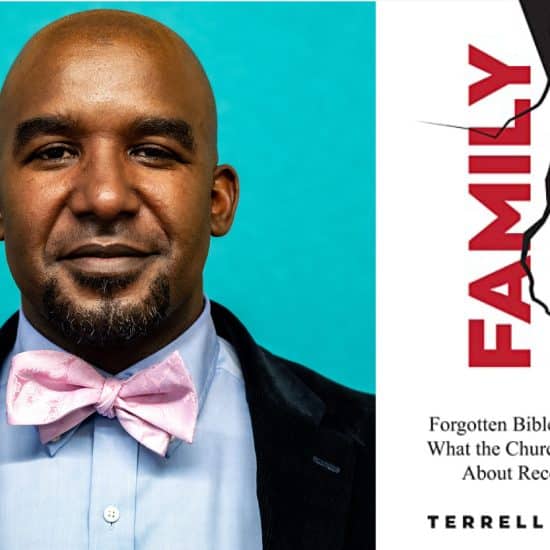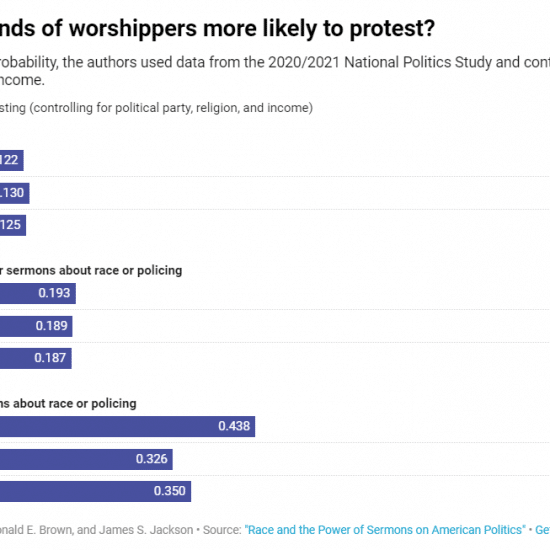BRIDGEPORT, Conn. (ABP) — A federal judge ruled May 31 that a Connecticut school district's plan to hold graduation ceremonies in a mega-church violates the constitutionally mandated separation of church and state and ordered school officials to find a secular alternative site.
U.S. District Judge Janet Hall handed down a preliminary injunction blocking Enfield Public Schools from holding graduations for two high schools scheduled June 23-24 at The First Cathedral, a 120,000 square-foot facility that is home to an 11,000-member Christian church.
The judge said two seniors at Enfield High School and three parents proved "a likelihood of irreparable harm" if the court did not intervene and "a substantial likelihood of success" in their lawsuit alleging that holding the graduation at the church instead of a neutral site violates the First Amendment of the U.S. Constitution.
"The court's ruling will ensure that no student or parent has to choose between missing their own graduation and being subjected to a religious environment of a faith to which they do not subscribe, said Alex Luchenitser, senior litigation counsel for Americans United for Separation of Church and State. "It is unconstitutional and wrong for a school district to subject students and families to religious messages as the price of attending graduation."
AU joined the American Civil Liberties Union, the ACLU of Connecticut to challenge the graduation plans. Enfield High and another district high school had been using the church as a temporary alternative for graduations when construction was being done on their athletic fields during the school years of 2006-2007 and 2007-2008.
This year the school board voted 6-3 to move the graduations back to the two schools themselves but later reversed the decision after lobbying by the Family Institute of Connecticut, a non-profit that lobbies the state government for conservative values.
Peter Wolfgang, executive director of FIC and president of its lobbying arm, FIC Action, urged the board to return to First Cathedral in order to "stand up for religious rights" and to fight back against the ACLU.
An FIC blog called the board's decision to go back to the church "a victory for religious liberty and common sense" that "would not have happened without the Family Institute of Connecticut."
Judge Hall said she did not conclude the board necessarily shared Wolfgang's purpose for moving the venue, but the larger issue was that under the circumstances a "reasonable observer" attending the 2010 graduations would perceive that the school district was endorsing religious views of the church.
According to the opinion, one of the plaintiffs, an agnostic, attended last year's graduation ceremony and said that because of the "pervasively religious environment" the student probably would not attend his or her own graduation if it were held at the church. Another student who is Jewish said he or she would feel like First Cathedral is proselytizing its religious beliefs by symbols like crosses, stained-glass windows and Christian scriptures.
Hall said the First Amendment provides that "Congress shall make no law respecting an establishment of religion, or prohibiting the free exercise thereof "but does not define "establishment." To navigate interpretation of the Establishment Clause, she said courts have adopted a principle of "neutrality" neither favoring nor disfavoring religion.
She said choosing to hold graduation ceremonies at a church when several alternatives like a local symphony hall were available — some at a lower cost — sends a message that Enfield Public Schools endorses religion.
The judge said forcing people to choose between attending a public-school ceremony amid religious imagery and missing high-school graduation ceremonies is "precisely the kind of coercion that violates the Establishment Clause."
The school district, represented pro bono by the American Center for Law and Justice, argued that since no religious activity occurs during graduation ceremonies they did not violate the Establishment Clause.
The Family Institute of Connecticut said in a blog posting that Judge Hall's ruling conveyed a message "that FIC and First Cathedral are outsiders, not full members of the political community, and that the despisers of religion are insiders, favored members of the political community." The group said lawyers would seek an expedited appeal to the Second Circuit Court of Appeals in New York.
James Gibson, staff counsel for the Baptist Joint Committee for Religious Liberty, said having graduation exercises in a religious venue is commonplace in some communities — particularly in rural areas where a local church is the only place large enough to hold the crowd — but it can sometimes cause problems when it involves persons of a different faith or no faith at all.
While most graduations scheduled for religious venues are not veiled attempts to proselytize, Gibson said graduation ceremonies should be held in a non-religious venue whenever possible. When a religious venue is the most suitable option, measures should be taken to ensure that there is no implicit or explicit linkage between the civic event and the host religious venue.
In deciding to move its graduation ceremonies back to the church, the Enfield school board asked First Cathedral to cover or remove 16 items, including a communion table and all church pamphlets, in order to reduce the religious content of the setting. Since the church ignored such requests in the past, Judge Hall said there is no guarantee that church leaders would comply with the request this year.
Even if they did, she said, it would create "excessive entanglement" between church and state, because the town of Enfield has no authority to monitor activities or interfere in religious matters within a local church.
-30-
Bob Allen is senior writer for Associated Baptist Press.






